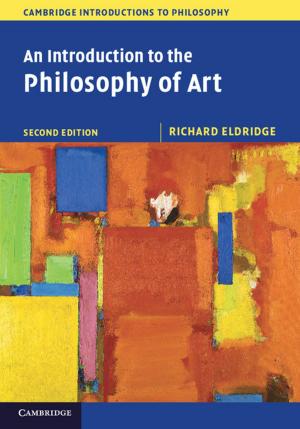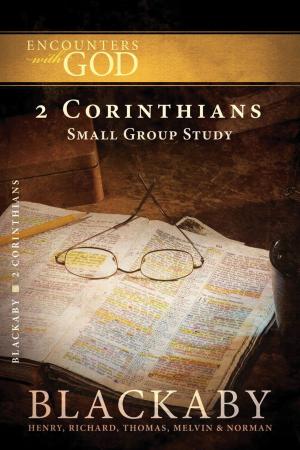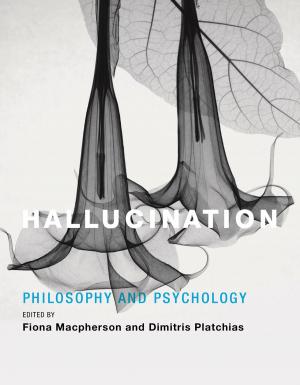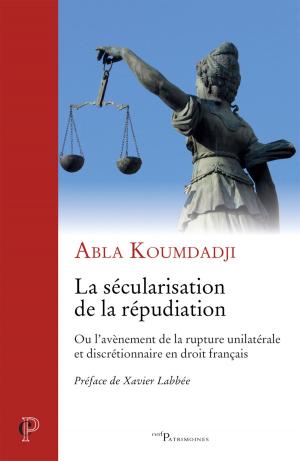Aids to Reflection : And the Confessions of an Inquiring Spirit
Nonfiction, Religion & Spirituality, Reference, Ritual & Practices, Christianity, General Christianity, Inspiration & Meditation, Spirituality| Author: | Samuel Taylor Coleridge | ISBN: | 1230000231569 |
| Publisher: | GEORGE BELL AND SONS | Publication: | April 8, 2014 |
| Imprint: | Language: | English |
| Author: | Samuel Taylor Coleridge |
| ISBN: | 1230000231569 |
| Publisher: | GEORGE BELL AND SONS |
| Publication: | April 8, 2014 |
| Imprint: | |
| Language: | English |
Aids to Reflection : And the Confessions of an Inquiring Spirit
If then it be our prerogative, as rational beings, and our duty as Christians, to think, as well as to act, rationally,—to see that our convictions of truth rest on the grounds of right reason; and if it be one of the clearest dictates of reason, that we should endeavour to shun, and on discovery should reject, whatever is contradictory to the universal laws of thought, or to doctrines already established, I know not by what means we are to avoid the application of philosophy, at least to some extent, in the study of theology. For to determine what are the grounds of right reason, what are those ultimate truths, and those universal laws of thought, which we cannot rationally contradict, and by reflection to compare with these whatever is proposed for our belief, is in fact to philosophize; and whoever does this to a greater or less extent, is so far a philosopher in the best and highest sense of the word. To this extent we are bound to philosophize in theology, as well as in every other science. For what is not rational in theology, is, of course, irrational, and cannot be of the household of faith; and to determine whether it be rational in the sense already explained or not, is the province of philosophy. It is in this sense that the Work before us is to be considered a philosophical work, namely, that it proves the doctrines of the Christian Faith to be rational, and exhibits philosophical grounds for the possibility of a truly spiritual religion. The reality of those experiences, or states of being, which constitute experimental or spiritual religion, rests on other grounds. It is incumbent on the philosopher to free them from the contradictions of reason, and nothing more; and who will deny, that to do this is a purpose worthy of the ablest philosopher and the most devoted Christian? Is it not desirable to convince all men that the doctrines, which we affirm to be revealed in the Gospel, are not contradictory to the requirements of reason and conscience? Is it not, on the other hand, vastly important to the cause of religious truth, and even to the practical influence of religion on our own minds, and the minds of the community at large, that we should attain and exhibit views of philosophy and doctrines in metaphysics, which are at least compatible with, if they do not specially favour, those views of religion, which, on other grounds, we find it our duty to believe and maintain? For, I beg it may be observed, as a point of great moment, that it is not the method of the genuine philosopher to separate his philosophy and religion, and adopting his principles independently in each, to leave them to be reconciled or not, as the case may be. He has, and can have, rationally but one system, in which his philosophy becomes religious, and his religion philosophical. Nor am I disposed in compliance with public opinion to limit the application of this remark, as is usually done, to the mere external evidences of revelation. The philosophy which we adopt will and must influence not only our decision of the question, whether a book be of divine authority, but our views also of its meaning.
Aids to Reflection : And the Confessions of an Inquiring Spirit
If then it be our prerogative, as rational beings, and our duty as Christians, to think, as well as to act, rationally,—to see that our convictions of truth rest on the grounds of right reason; and if it be one of the clearest dictates of reason, that we should endeavour to shun, and on discovery should reject, whatever is contradictory to the universal laws of thought, or to doctrines already established, I know not by what means we are to avoid the application of philosophy, at least to some extent, in the study of theology. For to determine what are the grounds of right reason, what are those ultimate truths, and those universal laws of thought, which we cannot rationally contradict, and by reflection to compare with these whatever is proposed for our belief, is in fact to philosophize; and whoever does this to a greater or less extent, is so far a philosopher in the best and highest sense of the word. To this extent we are bound to philosophize in theology, as well as in every other science. For what is not rational in theology, is, of course, irrational, and cannot be of the household of faith; and to determine whether it be rational in the sense already explained or not, is the province of philosophy. It is in this sense that the Work before us is to be considered a philosophical work, namely, that it proves the doctrines of the Christian Faith to be rational, and exhibits philosophical grounds for the possibility of a truly spiritual religion. The reality of those experiences, or states of being, which constitute experimental or spiritual religion, rests on other grounds. It is incumbent on the philosopher to free them from the contradictions of reason, and nothing more; and who will deny, that to do this is a purpose worthy of the ablest philosopher and the most devoted Christian? Is it not desirable to convince all men that the doctrines, which we affirm to be revealed in the Gospel, are not contradictory to the requirements of reason and conscience? Is it not, on the other hand, vastly important to the cause of religious truth, and even to the practical influence of religion on our own minds, and the minds of the community at large, that we should attain and exhibit views of philosophy and doctrines in metaphysics, which are at least compatible with, if they do not specially favour, those views of religion, which, on other grounds, we find it our duty to believe and maintain? For, I beg it may be observed, as a point of great moment, that it is not the method of the genuine philosopher to separate his philosophy and religion, and adopting his principles independently in each, to leave them to be reconciled or not, as the case may be. He has, and can have, rationally but one system, in which his philosophy becomes religious, and his religion philosophical. Nor am I disposed in compliance with public opinion to limit the application of this remark, as is usually done, to the mere external evidences of revelation. The philosophy which we adopt will and must influence not only our decision of the question, whether a book be of divine authority, but our views also of its meaning.















